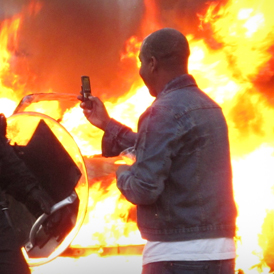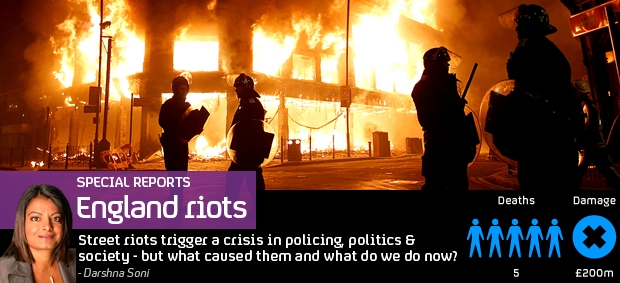Govt ‘not seeking powers’ to shut down social media networks
The Government says it will not be seeking further powers to close down social media or telecoms networks following riots across England.

The Home Secretary Theresa May has been meeting with representatives from the police, social media and telecom companies. They were talking through how they can work together to limit the use of social media and messaging services when they are used to organise crimes.
The Government described a meeting between Mrs May, police and executives from Blackberry developers Research in Motion, Twitter and Facebook as “constructive”.
Rioters used social networking websites like Twitter and Facebook to plot countrywide civil disobedience.
In a statement to Channel 4 News, Facebook said it found the meeting positive.
It said: “We found today’s discussion at the Home Office built on much of the work we are already doing with the UK authorities to ensure Facebook remains one of the safest places on the internet. We welcome the fact that this was a dialogue about working together to keep people safe rather than about imposing new restrictions on internet services.
“We were pleased to highlight our array of effective reporting tools and the relationships we have built with law enforcement to keep the site safe for the 30 million people in the UK who use Facebook – especially during times of crisis.
“We were also able to revisit the positive role Facebook played during the riots – from letting friends and family know they are safe to helping facilitate local clean-up operations. There is no place for illegal activity on Facebook and we take firm action against those who breach our rules.
Read more: BlackBerry messenger 'curfew' considered to hinder rioting
Asked about Twitter’s role during the escalating violence in London, the Metropolitan Police’s Acting Commissioner Tim Godwin told the home affairs select committee last week he had contemplated seeking the authority to switch it off.
But he added: “The legality of that is very questionable and additionally it is also a very useful intelligence asset.”
-
Latest news
-
500 years of music: exhibition challenges when Black British music began5m

-
‘We’ve got to do more’, says World Food Programme’s Palestine Director3m

-
Palestinian president expects Israel will go into Rafah ‘in coming days’1m

-
Rishi Sunak refuses to rule out July general election, again3m

-
Local elections: every Dorset council seat is up for grabs6m

-





